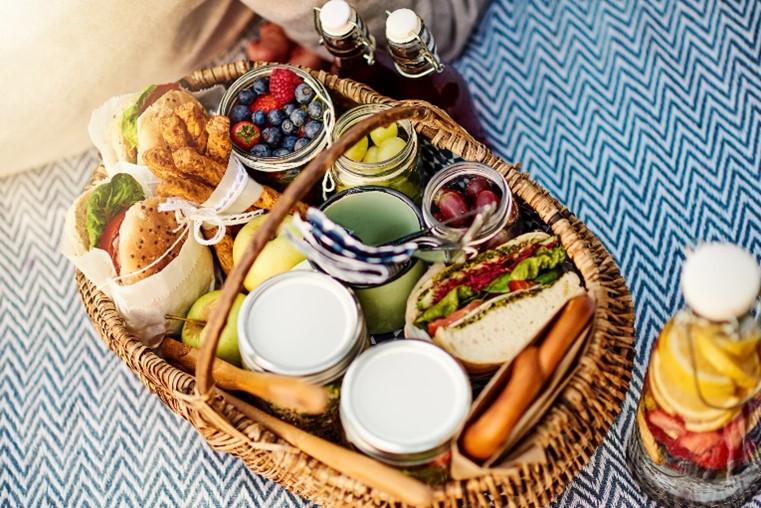
For many of us, summer is a time to lay back and relax. Summer is about the pool or the beach, picnics in the park, being carefree and having fun. However, when packing lunches for a day on the water or filling up your picnic basket, it’s important to be mindful of food safety.
According to the United States Department of Agriculture (USDA), bacteria are present throughout the environment in soil, air, water, and in the bodies of people and animals[1]. These microorganisms grow faster in the warm, humid, summer months. And given the right environment, harmful bacteria can quickly multiply on food[1]. This may result in sickness, especially if someone eats food that has been sitting out for a longer time period.
According to the USDA, hot food should be kept safely at a temperature of 140°F (60°C) or warmer. Cold food should be kept at a temperature of 40°F (4.4°C) or colder, and frozen foods should be stored at a temperature of 0°F (-17°C).
The USDA recommends keeping food out of the “Danger Zone” temperature, between 40°F and 140°F, because that range promotes rapid bacteria growth. To stay out of the “Danger Zone,” be sure to cook your foods to a safe minimal temperature:
Remember, color is never a reliable indicator of safety and doneness.
There are simple steps you can take for safer food in the summertime[1].
AFSPA offers multiple wellness programs available to Foreign Service Benefit Plan (FSBP) members that can help you make healthy choices as you prepare your summer meals.
Mediterranean Wellness Program: The Mediterranean diet is known to be one of the healthiest diets in the world. For those who want to see gains in overall well-being and appreciate a preplanned structure, try this?8-week interactive online program?that includes access to a registered dietician. You can receive up to 100% reimbursement for the Mediterranean Wellness Program once you complete at least 80% of the Program. At this point, FSBP?will automatically reimburse you for the cost of the program under the Plan’s Nutritional counseling benefit.
How do I sign up:
Health Coaching Program: The Health Coaching Program provides you and your covered dependents the opportunity to work one-on-one with a Health Coach about nutrition and other health goals. To enroll in this program, contact a Health Coach at 855-406-5122 or 479-973-7168. Coaches are available Monday through Thursday from 8:00 a.m.– 10:00 p.m. Eastern Time (ET) and Friday from 8:00 a.m.– 6:00 p.m. ET. You may also enroll online at?http://enroll.trestletree.com (passcode: FSBP).
Digital Coach Programs: If neither of the above options appeal to you, check out our digital coach programs. With digital coaching you can choose to work on a wellness goal, like nutrition, and online with a coach to meet your goals. Log on or register for “Aetna’s secure member website.” Look for the “Stay Healthy” icon, select “Discover a Healthier You” and proceed.
For full benefit details for this program, please see the FSBP Brochure, Section 5(h) Wellness and other Special features.
Copyright © 2025 All Rights Reserved by AFSPA.